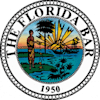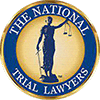Esquire, a professional title steeped in history, signifies an individual who has earned the right to practice law within a specific jurisdiction. Tracing its roots back to medieval Europe, the term “esquire” was initially used to designate young noblemen who assisted knights by performing various duties, including carrying weapons, tending to horses, and delivering messages. As these young men gained experience and knowledge, they also began to handle legal and administrative tasks on behalf of their knightly patrons, acting as intermediaries in matters of estate management and dispute resolution.
By the 16th century, the use of “esquire” had shifted, transforming into a courtesy title bestowed upon legal practitioners who had not yet attained the higher rank of a knight. These legal professionals provided counsel and representation to clients in civil and criminal cases, quickly becoming an indispensable part of the societal fabric. As the study and practice of law became increasingly complex and specialized, the title “esquire” continued to evolve, eventually becoming an emblem of professional accomplishment and respect within the legal field.
In the modern era, the title “Esquire” is a widely recognized marker of an individual’s status as a licensed attorney. While its use varies across different jurisdictions, the title is generally reserved for those who have successfully completed a rigorous course of legal education, passed a comprehensive bar examination, and satisfied any other jurisdiction-specific licensing requirements. As a result, the designation “Esquire” conveys not only an attorney’s legal expertise but also their adherence to the ethical standards and professional responsibilities that underpin the practice of law. By proudly bearing the title of “Esquire,” legal practitioners carry on a centuries-old tradition of service, advocacy, and the pursuit of justice.
Requirements for Obtaining the Esquire Title
Educational qualifications
To become an Esquire, a candidate must first obtain a law degree. In the United States, this typically involves completing a Juris Doctor (J.D.) program from an accredited law school. In other jurisdictions, a Bachelor of Laws (LL.B.) degree may be the standard qualification. Some individuals may also choose to pursue postgraduate law qualifications, such as a Master of Laws (LL.M.) or Doctor of Juridical Science (S.J.D.), to further specialize in a particular area of law.
Bar examination
Upon completion of their law degree, candidates must pass a bar examination to demonstrate their competence in legal knowledge, reasoning, and analysis. The format and content of the bar examination vary by state, but generally, it consists of multiple-choice questions, essays, and performance tests. Some states have adopted the Uniform Bar Examination (UBE), which allows for the transfer of scores between participating jurisdictions.
Character and fitness evaluation
Before being granted the Esquire title, candidates must also undergo a character and fitness evaluation to ensure they possess the necessary moral and ethical qualities to practice law. This process typically includes a thorough background check, interviews, and, in some cases, a review of personal references.
Licensing and admission to the state bar
Finally, candidates must apply for and be granted a license to practice law in their chosen state. This involves submitting an application to the state bar association, paying the required fees, and taking an oath to uphold the laws and ethical standards of the legal profession.
Roles and Responsibilities of an Esquire
As licensed attorneys, Esquires perform a variety of roles and responsibilities in the legal system, including:
- Legal representation and client advocacy – Esquires represent clients in legal matters, providing guidance and counsel throughout the process. They advocate for their clients’ interests, striving to achieve the best possible outcome.
- Legal counseling and advice – Esquires offer legal advice to clients on various issues, ranging from contracts and property disputes to criminal defense and family law matters.
- Preparation and review of legal documents – An essential part of an Esquire’s job is drafting, reviewing, and revising legal documents, such as contracts, wills, and pleadings.
- Negotiation and conflict resolution – Esquires frequently negotiate on behalf of their clients in an effort to resolve disputes and reach mutually beneficial agreements.
- Courtroom litigation – When legal disputes cannot be resolved through negotiation, Esquires may represent their clients in court, presenting evidence, examining witnesses, and making arguments before a judge or jury.
- Continuing legal education and professional development – To maintain their license, Esquires must regularly complete continuing legal education (CLE) courses and stay abreast of changes in the law and legal practice.
Ethical Considerations and Professional Conduct
Esquires are bound by a set of ethical rules and professional conduct guidelines, such as the Model Rules of Professional Conduct. Key principles include:
- Attorney-client privilege – Esquires are required to maintain the confidentiality of information shared by clients in the course of representation.
- Conflict of interest – Esquires must avoid representing clients whose interests conflict with those of their other clients or their own personal interests.
- Confidentiality – Esquires have a duty to protect confidential information obtained during the course of their professional relationships, even after the attorney-client relationship has ended.
- Duty of competence and diligence – Esquires are expected to provide competent representation and to act diligently in pursuing their clients’ interests.
Usage of the Esquire Title
Appropriate contexts and settings
The Esquire title is typically used in formal correspondence, legal documents, and professional settings, such as court appearances and conferences. It is generally not used in casual or social situations.
Distinction between Esquire and other legal titles
Esquire is a title specifically used to denote a licensed attorney. Other legal titles, such as Attorney-at-Law, Solicitor, Barrister, Advocate, and Counselor, may refer to different roles or qualifications within the legal profession, depending on the jurisdiction.
International variations and recognition
The usage of the Esquire title varies internationally, with some countries recognizing the title and others employing alternative titles for legal practitioners. It is important to understand the specific legal titles and qualifications applicable in each jurisdiction.
Related Legal Titles and Professions
- Attorney-at-Law – An Attorney-at-Law is a legal practitioner who is qualified to represent clients in all types of legal matters, both in and out of court. The terms Attorney-at-Law and Esquire are often used interchangeably in the United States.
- Solicitor – In some common law jurisdictions, such as the United Kingdom, a Solicitor is a legal professional who primarily provides legal advice and prepares legal documents. Solicitors may also represent clients in lower courts but typically instruct Barristers to represent clients in higher courts.
- Barrister – A Barrister is a legal practitioner in certain common law jurisdictions who specializes in courtroom advocacy, providing legal opinions, and representing clients in higher courts.
- Advocate – An Advocate is a legal professional who represents clients in court and provides legal advice, similar to a Barrister. The title is primarily used in civil law jurisdictions and in some common law jurisdictions, such as Scotland and South Africa.
- Counselor – A Counselor is a term sometimes used to refer to a legal practitioner who provides legal advice and representation. The usage of this title may vary depending on the jurisdiction.
Summary
The Esquire title is a significant and recognized designation in the legal profession, signifying an individual’s right to practice law in a given state. Esquires play a crucial role in the legal system, representing clients, providing legal advice, and upholding ethical standards. Understanding the requirements, roles, and responsibilities associated with the Esquire title is essential for aspiring legal practitioners and those seeking to navigate the complexities of the legal profession.







